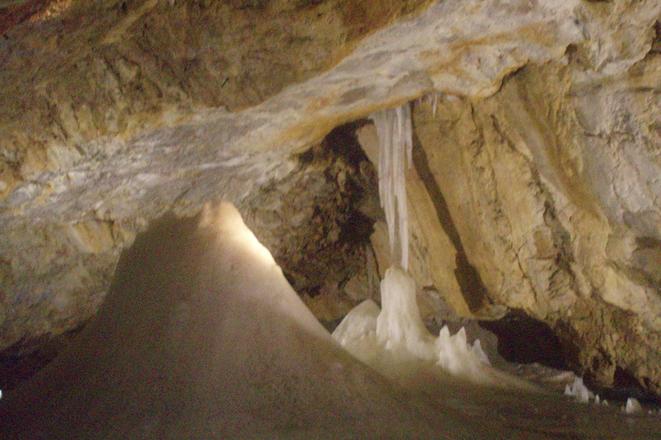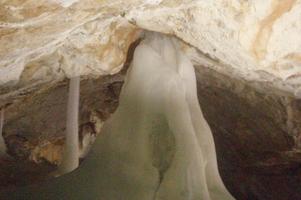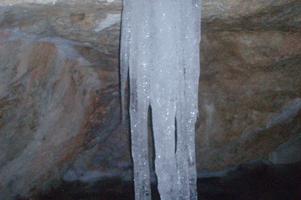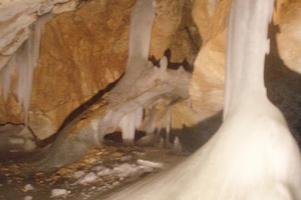Lang was born on February 8, 1845 in Dobšiná. He trained as a merchant, was a mine entrepreneur for a brief period of time and, from 1884, a town police captain in Dobšiná. His hobby was being in nature and speleology.
In July 1870, he was involved in exploring underground spaces of the Duča hill in the valley of the Hnilec river. A hole was there where local shepherds used to come to cool themselves on hot summers. Thanks to Gustáv Lang and two more helpers, mining engineer Eugen Ruffiny roped down. He found himself in an underground hall, the roof made of colourful rocks and the floor from glittering ice.
The unique cave was opened for the public already one year later, and in 1887 it became the first cave in Europe with electric lighting. Ice appears here in several forms, and the thickness of ice in some places exceeds 25 metres. In 1890, a concert took place in its Great Hall, hailing Archduke Joseph Karl (Habsburg) of Austria.
Since 1893, the cave was well known for summer ice skating. As late as the 1950s, successful Czechoslovak figure skater Karol Divín trained there, the TASR newswire wrote. It is also one of the most important winter sites of bats in Slovakia: 12 species were discovered here.
In 1979, Dobšinská Ice Cave was pronounced a protected natural phenomenon and it became a National Nature Monument. On November 29, 2000 the cave was inscribed on the UNESCO World Heritage List of natural sites and was acknowledged as global unique phenomenon.
The co-discoverer, Gustáv Lang, died on February 23, 1901 in his hometown of Dobšiná.



 Dobšinská Ice Cave (source: Zuzana Vilikovská)
Dobšinská Ice Cave (source: Zuzana Vilikovská)


